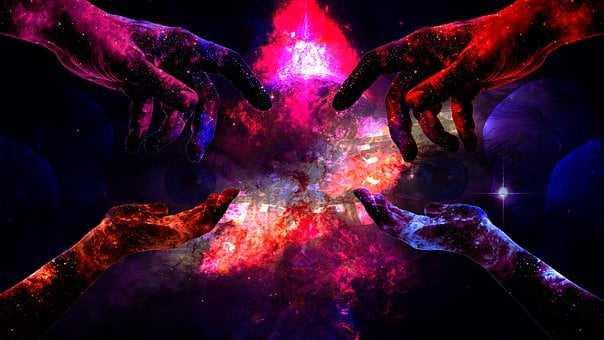Why can’t the world’s greatest minds solve the mystery of consciousness?
Curated from: theguardian.com
Ideas, facts & insights covering these topics:
9 ideas
·2.65K reads
5
Explore the World's Best Ideas
Join today and uncover 100+ curated journeys from 50+ topics. Unlock access to our mobile app with extensive features.
The Hard Problem of Consciousness
Consciousness could be described as the feeling of being inside your head, looking out, or of having a soul.
How we learn, store memories, or perceive things, are easy problems to solve. The problematic part is why all those complicated brain processes feel like anything from the inside.
96
471 reads
Between Science And Philosophy
The problems of consciousness straddle the border between science and philosophy.
- Some argue that conscious sensations, such as pain, don't really exist, others, that plants and trees must also be conscious.
- A handful of neuroscientists have come to believe that the problem is about to be solved if we are willing to accept the conclusion that computers or the internet might soon become conscious too.
103
402 reads
Ignoring The Problem
Science has been trying to ignore the problem of consciousness for a long time.
- In the 1600s, René Descartes declared that nothing is more obvious and undeniable than the fact that we are conscious. Your consciousness can't be a fantasy. At the same time, your consciousness does not obey any of the usual rules of science. It doesn't seem to be physical. It can't be observed or really described. Descartes concluded that it had been bequeathed to us by God.
- This Cartesian dualism remained the assumption into the 18th century. But it was unacceptable to the secular scientist that took the position that only physical things exist.
- As late as 1989, the British psychologist Stuart Sutherland declared that it is impossible to specify what consciousness is, what it does, or why it evolved.
- In 1990 Francis Crick and Christof Kock mentioned in a paper that most of the work in both cognitive and neurosciences makes no reference to consciousness because most don't know of a useful way of approaching the problem.
100
272 reads
Consciousness Is Not Mechanical
We could tell simple mechanical stories about the machinery of the eye, but it doesn't begin to explain the breathtaking experience of depth and clarity.
Consciousness can't just be made of ordinary physical atoms. Philosopher David Chalmers argues that it must be an additional ingredient in nature.
100
309 reads
Above The Physical Being
Most may think of consciousness as something above our physical being - as if your mind were driving your body. But to accept this as a scientific principle would discount the laws of physics.
Everything we know about the universe tells us that reality consists of physical atoms and their component particles. If non-physical mental stuff did exist, how can it cause physical things to happen?
93
233 reads
Consciousness As A Fantasy
Professor Daniel Dennett, the high-profile atheist, argues that consciousness is an illusion, that the normal functioning of the brain just makes it look as if there is something non-physical going on.
His opponents think he simply denies the existence of something everyone knows: that of their inner experience of sights, smells, emotions, and rest.
95
273 reads
Unresolved Questions
Patricia Churchland, a self-described neurophilosopher, thinks neuroscience will eventually show that consciousness is just brain states.
Several ideas are surfacing: "global workspace theory," "ego tunnels," "microtubules," even speculation that quantum theory may provide an answer. But some thinkers raise the possibility that they should not assume that they can solve every big philosophical puzzle that arises.
90
243 reads
Panpsychism
In the last few years, several scientists and philosophers are looking at panpsychism, the idea that everything in the universe might be conscious, or potentially conscious, or conscious when putting into particular configurations.
A narrower view is that anything could be conscious, providing that the information it contains is sufficiently interconnected and organized. The human brain fits the description, so do the brains of animals, though their consciousness may be different. But that principle may also apply to the internet or a smartphone.
100
214 reads
The Integrated Information Theory
The "integrated information theory" has been tested. A device has been designed to measure how integrated the brain's neural circuits are. When people fall into a deep sleep, the device demonstrates that their brain integration declines too.
In theory, you can take any device, measure the complexity of the information contained in it, and then work out whether or not it was conscious.
89
235 reads
IDEAS CURATED BY
Jay Barr's ideas are part of this journey:
Learn more about personaldevelopment with this collection
How to create customer-centric strategies
The importance of empathy in customer success
The impact of customer success on business growth
Related collections
Similar ideas
5 ideas
Qualia | Internet Encyclopedia of Philosophy
iep.utm.edu
11 ideas
4 ideas
The Mystery of Consciousness II | Sam Harris
samharris.org
Read & Learn
20x Faster
without
deepstash
with
deepstash
with
deepstash
Personalized microlearning
—
100+ Learning Journeys
—
Access to 200,000+ ideas
—
Access to the mobile app
—
Unlimited idea saving
—
—
Unlimited history
—
—
Unlimited listening to ideas
—
—
Downloading & offline access
—
—
Supercharge your mind with one idea per day
Enter your email and spend 1 minute every day to learn something new.
I agree to receive email updates

